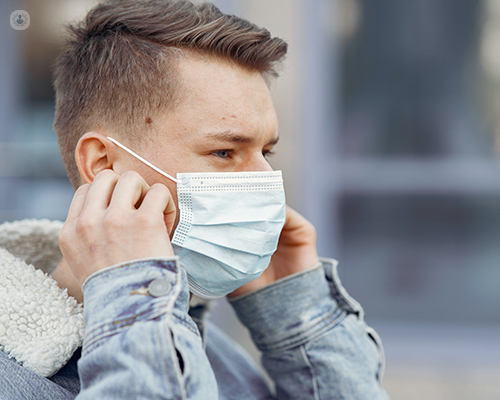Are men suffering more from COVID-19 than women?
Written by:Clear evidence has been found that COVID-19 can affect men more than women. The UK’s Office of Nationals Statistics (ONS) recently released data revealing that men are almost twice as likely to die from the virus.
The trend was first seen in China, where one analysis found a fatality rate of 2.8% in men compared with 1.7% in women. Since then, similar statistics have been documented in France, Germany, Iran, Italy, South Korea, and now in the UK. So why is this? We’ve taken a look at some of the factors that might be causing this to happen.

Smoking habits
In the UK, according to Office of National Statistics (ONS), more men (16.5 per cent) than women (13 per cent) still smoke. If you’re a smoker, you’re already likely to die from heart or lung disease, this would likely also make a recovery from COVID-19 more difficult. As we know, the NHS has highlighted that those who suffer from serious heart or lung conditions are “extremely vulnerable”.
Adult obesity in men
Links between obesity and those hit hard by COVID-19 have also been apparent and evidence has been supported by France’s chief epidemiologist Professor Jean-Francois Delfraissy . The Health Survey for England 2017 reported that men are more likely than women to be overweight or obese (67.2% of men compared with 61.5% of women), this could also play a part in why the majority of those who are critically ill from COVID-19, are men.
Recently, seven out of 10 patients admitted to intensive care units in the UK with coronavirus were overweight or obese.
Alcohol consumption in men
Drinking habits may also play a part. According to Alcohol Change UK, alcohol is a causal factor in more than 60 medical conditions, including throat, mouth, liver and breast cancers as well as high blood pressure. Public Health England figures show that of those seeking treatment for alcohol addiction, 60 per cent are men.
If excessive drinking of alcohol causes medical conditions that can make us more vulnerable to COVID-19, it may be contributing to the number of male COVID-19 patients dying. We recently covered why reducing alcohol consumption is important during the pandemic.
Hygiene habits in men
Another suggestion that has been made is that it may be due to men being “less likely to comply with basic sanitation measures such as hand washing”, according to a study from Kunihiro Matsushita of Johns Hopkins University.
A study of sex differences in China found that men with COVID-19 in hospital were also more likely to be carrying other viruses, including flu, and bacteria, and it is possible that this may increase the severity of COVID-19 symptoms.
Genetic factors
According to nanotechnologist, Dr Michelle Dickinson, while lifestyle habits play a part, the difference in the ways men and women react to COVID-19 appears to revolve more around the hormonal, immunological and genetic differences.
According to immunologist Phillip Goulder at the University of Oxford, due to women’s hormones, their two X chromosomes (men only have 1 X chromosome) and their many immune function genes, they are better at fighting off infection.Naturally, this means women typically have stronger immune responses than men, except from when they’re pregnant (the immune response isn’t as strong at this time to avoid attacking the foetus).
It may also be worth considering innate fitness. Women process oxygen more quickly than men when they start exercising, according to study from the University of Waterloo. Women’s muscles extract oxygen from the blood faster, which, scientifically speaking, “indicates a superior aerobic system”.
Everyone is at some risk and everyone can help improve the COVID-19 situation
Smoking, the prevalence of pre-existing conditions, behavioural factors, and biological disadvantages have all been proposed as possibly contributing to the larger number of COVID-19 related deaths in males, in comparison to females.
There’s still plenty that we don’t understand about the sex differences seen so far in relation to COVID-19, but there is also plenty to reflect on. If we look at the bigger picture, sex differences in the frequency, severity and treatment efficacy for many diseases were pointed out long ago.
We still have a lot to learn about why some cases of the novel coronavirus end in severe illness, respiratory failure or death, and some don’t — regardless of a person’s sex. There are a multitude of unproven conjectures.
For now, whether male or female, we all have the responsibility to reduce our own odds of getting the virus and spreading it to others. It remains crucial for everyone to do their part (maintaining social distancing, washing hands, etc.) to keep the virus from spreading. Stay healthy and stay home.


